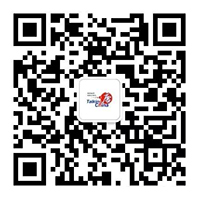One day in 2017, I was busy with my reply to the customer's mail. The phone on the desk ringed, and there was an anxious voice from a woman.
After some conversation, I realized that she was a Swedish-Chinese, sold the house in Shanghai, paid the relevant taxes and fees according to local regulations, and also obtained the VAT invoice issued by the domestic taxation department of China. Now she needs to translate the house sale contract and related invoices. The purpose of the translation is to explain to the Swedish side that the income from the sale of the house has already been taxed in China, so there is no need to pay taxes again in Sweden.
The customer had found a translation company and the "增值税" on the invoice was literally translated as "VAT", but the Swedish lawyer said that he could not understand, VAT is generally paid by the company, how can individuals have VAT? As a result, the tax payment of the customer has become a problem. If the translation is not good and unreasonable, it may be subject to a repeated tax payment in Sweden. The customer was quite worried.
However, the client herself does not know much about the local and domestic tax payment policies in Sweden. And for some reason, we cannot directly talk to the Swedish lawyers to learn more about the situation. I realized that the client's translation needs are not literal translations. Instead, I need to give consulting advice, help to localize the VAT invoices, to make it understood by relevant local authorities in Sweden.
After understanding all the information, I comforted the customer: “just leave professional matters to professional people. There must be a solution”. The customer stabilized the mood and promised to wait for my reply.
Putting down the phone, I immediately proceeded to do some investigation and information preparation. After many consultations and confirmations, I learned about the tax payment policy for Shanghai Real Estate sales and purchases at that time:
“According to the regulations of the Shanghai Housing Authority, Shanghai will implement a new standard for ordinary housing from November 20, 2014. Additional personal income tax is payable unless the following conditions are met:
1.more than five floors (including five floors) of multi-story housing, and less than five-story old-fashioned apartment, new style lane housing, old style lane housing, etc.;
2.The single building area is below 140 square meters;
3.Actual transaction price: less than 1.44 times the average transaction price of the house on the same level of land, less than 4.5 million yuan /set within the inner ring line, and less than 3.1 million yuan /set between the inner ring line and the outer ring line. Less than 2.3 million yuan per set outside the outer ring line. "
The “extra personal income tax” in this article is actually the so-called “value-added tax” on the invoice, which is an additional income tax that is subject to special provisions in addition to the “Personal Gain Tax” normally required to be paid. At the same time, I also learned how the equivalent English of Swedish related taxation is expressed, in order to use the vocabulary they can understand to clarify this “增值税”.
Finally, through discussions with the translator, we recommend that the customer translate the “增值税” in the invoice into “Additional Tax to Personal Gain Tax” . Policy references and explanations were noted with the translation to make the Swedish side, who has no background information at all, can understand it immediately by reading the English information without further explanation.
When we handed the translation to the customer, the customer was still a little worried, not knowing if she can pass the test in Sweden. But I was very confident, because I have done enough homework. After a few days, the customer called me again and her voice was full of joy, telling me that the problem had been solved, and the Swedish side exempted her from paying taxes again. Only at this time, the client said that she is a very influential Chinese artist in Sweden, so she is very concerned about these legal details, and cannot leave any aftereffects, which is why she is so cautious and serious to deal with this matter.
The customer was very satisfied with our service and took the initiative to pay the consultation fee, because she knew that if she pay "增值税" as a three-word translation, she would hardly have to pay anything, but the taxes lost will be a big cost. Through this case, I realized that the purpose of translation work is to effectively convey information and help customers solve problems instead of simply processing words. For TalkingChina Translation, the only and supreme standard to assess our work is whether we meet the needs of customers, effectively solve their problems, and create value for them.






